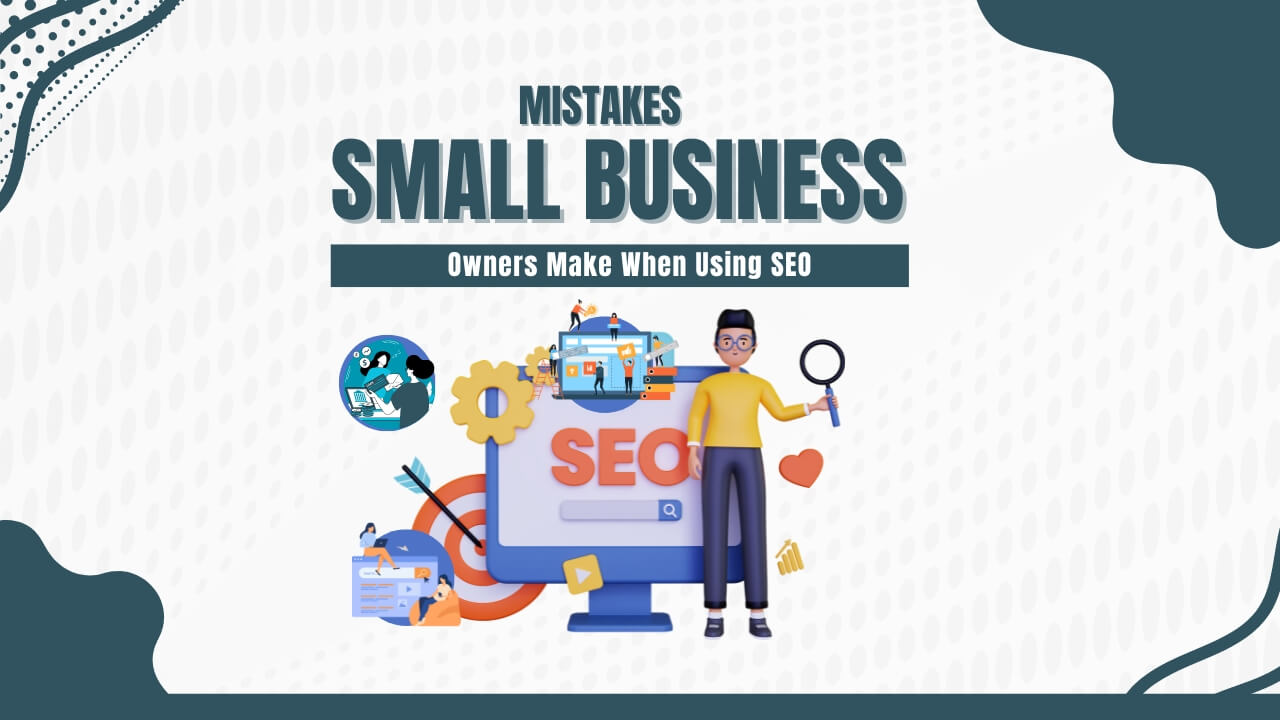Introduction
In this ever growing era of digital marketing, businesses are continuously seeking innovative and efficient ways to reach their target audience and to effectively maximize their high return on investment.
With the invent of online advertising, platforms like Google have revolutionized how businesses promotes their products and services. As Sujit Shukla Emphasis, Among various options available, Google Ads and Smart Campaigns are two of the most powerful tools in the books of digital marketers.
Google Ads, also known as Google AdWords, is basically a comprehensive digital advertising platform that allows businesses to effectively create and run ads across Google’s vast range of networks, which mainly includes the search results, websites, and even YouTube videos. It does offer immense flexibility and control, enabling advertisers to effectively tailor their campaigns to their specific goals and audiences.
On the other hand, Smart Campaigns, has been introduced as a streamlined version of Google Ads, and is mainly designed to simplify the online advertising for small as well as medium-sized businesses.
By leveraging the power of Google’s machine learning, Smart Campaigns automate much of the campaign creation and management process, making it easier for the businesses which have limited resources or marketing expertise to get started with the online advertising.
The question then arises between the Google Ads and Smart Campaigns, which platform is best for your advertising needs? Well this blog mainly aims to delve more deeper into the features, benefits, and limitations of both platforms, providing a detailed comparison that will help you make an informed decision.
What are Google Ads?
Google Ads, is basically a major cornerstone of digital advertising mainly empowering the businesses of all sizes to display their advertisements across Google’s wide range of networks.
This platform, emerging from its earlier incarnation as Google AdWords in the earlier 2000, has grown to become synonymous with the online advertising platforms. Its main allure lies in its extensive reach, mainly encompassing Google Search, and also other partner websites, YouTube, and more, offering advertisers immense visibility.
At its core, Google Ads as well also discussed earlier mainly operates on a pay per click model, where advertisers have to pay each time when a user interacts with their ad.
This efficiency ensures that the marketing budgets are effectively tied to the performance, a compelling feature for businesses keen to optimize the advertising expense.
Setting up a campaign in Google Ads involves selecting the keywords, crafting the ad copy, and targeting the audience. The platform’s sophisticated algorithms then allows your ads to bid for the ad placement in the spaces where they are most likely to achieve the advertising goals, whether the main aim is to generate clicks, impressions, or conversions.
Key features of Google Ads include:
- Keyword Targeting: Advertisers can effectively target their ads based on the specific keywords and phrases that their potential customers are continuously searching for, ensuring to obtain higher relevancy and visibility.
- Ad Extensions: These enhance the ads with additional information, such as contact details, links to specific parts of the website, or product images, thereby indirectly improving the click through rate.
- Robust Analytics: Google Ads also provides detailed reports and insights, allowing the advertisers to effectively track the performance of their ads in real-time and to make a decision based on the campaign performance.
The endless number of benefits of using Google Ads, including immediate visibility on the Google search engine, flexible budget options, and the ability to reach out to the potential customers whenever they are searching for the related products or services.
What are Smart Campaigns?
Smart Campaigns represents Google’s endeavor to democratize online advertising, effectively tailored for small as well as medium size businesses with the limited marketing budgets or expertise.
It is mainly Introduced as an integral part of the Google Ads ecosystem, Smart Campaigns also helps to simplify the advertising process by automating some of the key decisions based on the advertiser’s goals.
The innovation behind Smart Campaign mainly lies in the Google advanced machine learning algorithms.
These algorithms are highly optimized for ads delivery and also to target the audiences that are most likely to take the desired action, whether visiting a website, making a phone call, or completing an overall purchase.
This hands-off approach mainly allows the business owners to primarily focus on their operations while Smart Campaigns effectively manages the intricacies of their online advertising efforts.
Features and advantages of Smart Campaigns include:
- Automated Campaign Management: From selecting the right keywords to targeting, Smart Campaigns does automate the entire process based on the goals that have been set by the advertiser.
- Performance Focused: Utilizing machine learning, Smart Campaigns do continuously optimize the ad performance, ensuring that the advertising budgets are used efficiently to achieve the highest possible return.
- Simplified Reporting: With an emphasis on the essential metrics, Smart Campaigns do provide straightforward insights about the ads performance, making it easy for businesses to understand the advertising ROI.
Smart Campaigns are mainly beneficial for businesses mainly aiming for a low-maintenance approach to online advertising. They do offer a quick setup process, minimal ongoing management, and the ability to effectively reach the potential customers all across the internet without needing proper in depth marketing knowledge.
Comparative Analysis
Ease of Use
Google Ads is basically a robust platform that offers unparalleled precision and immense flexibility, demanding a steep learning curve.
The setup process involves multiple steps, which mainly includes the keyword selection, bid strategy determination, and also ad copy creation, necessitating a proper understanding of the online advertising principles.
It comes with a comprehensive interface, rich with features and options, allows for meticulous campaign customization but at the same time might be daunting.
Conversely, Smart Campaigns are basically designed with simplicity and accessibility in the mind. The setup process is streamlined, requiring only basic business information and advertising goals to get started.
This simplification, powered by Google’s machine learning, makes the Smart Campaigns one the most preferred and attractive actions for the website owners or for those who are new to digital advertising, looking for a hands-off approach.
Targeting and Optimization
Google Ads does offer detailed targeting options, which mainly includes the demographics, interests, location, and many more, allowing advertisers to effectively reach their ideal audience with full precision.
The platform’s manual optimization capabilities enable the user to restructure their strategy based on the performance data, a feature that mainly appeals to the advertisers by providing a handful of control.
Smart Campaigns also leverage artificial intelligence to automate the targeting and optimization. While this mainly reduces the granularity of the control, it does simplify the advertising process and can effectively manage the advertising to meet the targeted goals. This automation is mainly beneficial for the businesses with limited time or expertise in the digital marketing.
Cost Implications
Both Google Ads and Smart Campaigns as you know mainly operate on the PPC model but their cost-effectiveness might slightly vary.
Google Ads do offer more control over budget allocation and bid strategies, potentially leading to better cost efficiency for those who are skilled in the campaign management.
Smart Campaigns, while simpler, may not always provide the same level of budget optimization due to its automated nature, potentially leading to higher cost cut in some scenarios.
Performance and Analytics
Google Ads provides detailed analytics and performance metrics, offering some valuable insights into every aspect of the campaign’s performance. This data is very important to make informed decisions to effectively optimize the ad spend and improve ROI.
In contrast, Smart Campaigns on the other hand does provide a simplified reporting that mainly focuses on the key performance indicators (KPIs), such as clicks, impressions, and conversions. This approach caters to businesses that prefer an overview rather than in-depth analysis.
Flexibility and Control
Google Ads stands is mainly known for its immense flexibility and control, allowing advertisers to effectively adjust nearly every aspect of their campaigns. This level of customization is very much ideal for the business with specific advertising needs and the expertise to effectively manage some of the complex campaigns.
Smart Campaigns mainly prioritize easy to use and efficiency over the flexibility. By automating many of the decisions, they do offer a more straightforward, albeit less customizable, advertising solution.
Use Cases and Best Practices
Google Ads is mainly suitable for the businesses looking for granular control over their advertising efforts and for those with the resources to manage and optimize campaigns actively. It’s ideal for achieving specific, nuanced advertising goals across a wide range of industries.
Smart Campaigns are best for small to medium-sized businesses seeking to increase their online presence without dedicating significant time or resources to campaign management. They serve well for general awareness and lead generation purposes.
Conclusion
As Sujit Shukla States, Choosing between Google Ads and Smart Campaigns hinges on a business’s advertising goals, resources, and level of expertise in digital marketing. Google Ads offers depth and control, catering to those with a hands-on approach, while Smart Campaigns provide an accessible, low-maintenance option for smaller businesses or those new to online advertising. Ultimately, both platforms have their place in a comprehensive digital marketing strategy, potentially working in tandem to maximize online visibility and drive business growth.






